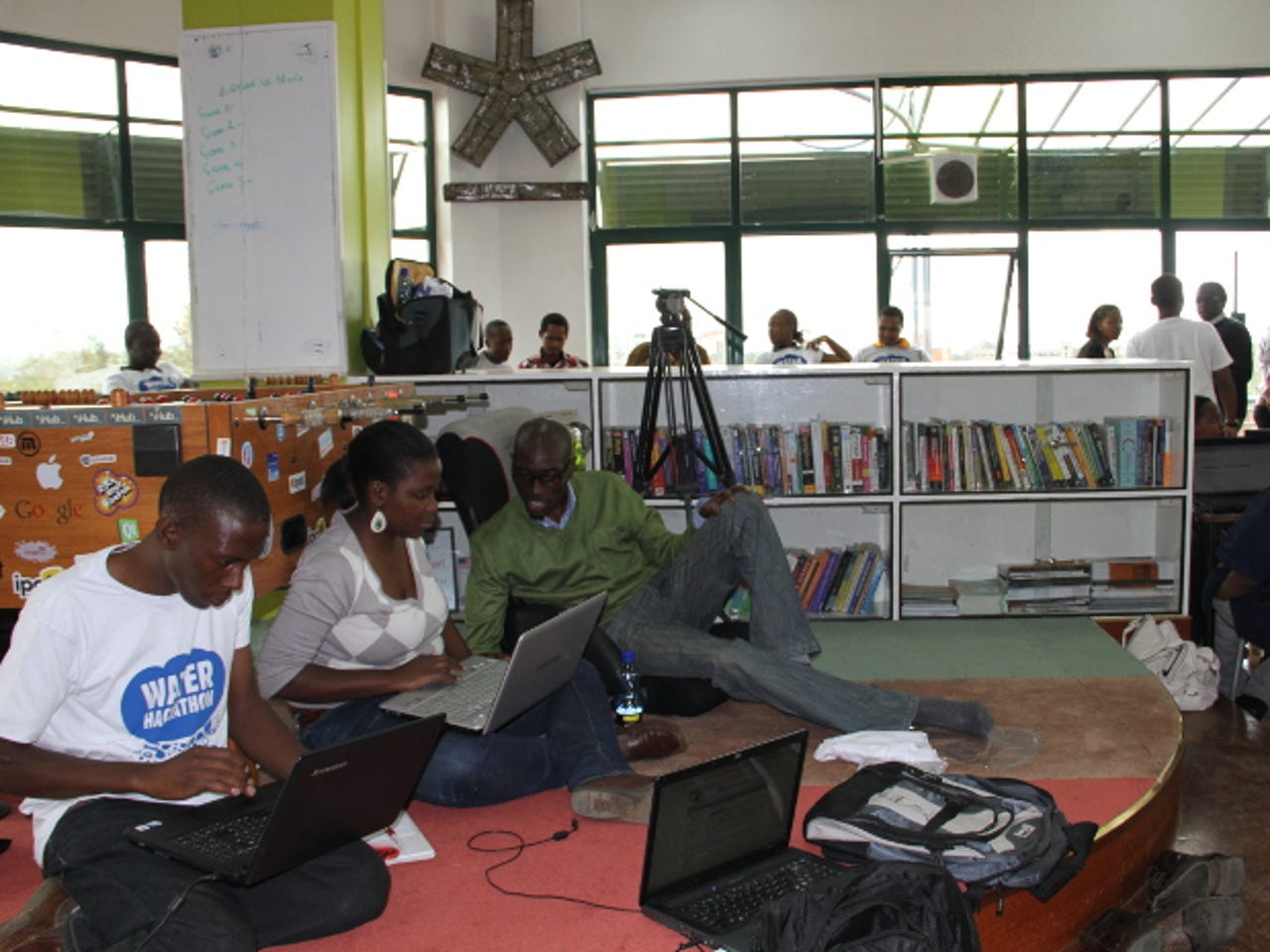Hub life: Africa's techies have found a model to bring together local startups and Western capital


Today Africa is dotted with over 100 such tech hubs, in everywhere from Botswana to Liberia. More are born every year, hungry for venture capital and support. In many countries, including Kenya, the entrepreneurial technology industry revolves around and depends upon such hubs in a way it never has in the West, giving rise to a tech scene that is more closely tied to the wealthier world, but with a distinctive character of its own.
When iHub started, its purpose was simple: it provided a cheap and reliable internet connection. "Back then, if you wanted to be online all day, you needed to go to an internet café and pay by the minute," says Mugethi Gitau, iHub's community manager. "This was a place where you could come and learn things for free."
Hub benefits
But what soon became evident is that a hub provided a way to track what was happening in Kenya's tech industry in a way that was never before possible. With internet access now easily available for everyone, Kenya's developers no longer need to cross town to get online. But the iHub is still bringing people together to exchange ideas, network, and create partnerships.
A hub's most crucial role is in providing access to badly-needed capital, says Mark Walker, regional director for sub-Saharan Africa for analyst IDC. Foreign investors tend to be wary of small startups in unknown markets, and in Africa itself "there isn't really a VC scene," he says. "It's generally family and friends and well-wishers that do the funding, and funding is the biggest problem for any startup."
What hubs have managed to become, argues Walker, are interfaces between African startups and Western capital. "The rest of the world doesn't completely get Africa. They see the growth, they see the economic impact, but they don't quite get how that happens. I think the tech hubs facilitate that understanding."
While tech centres act as a one-stop shop for investors looking for African opportunities, they also help African entrepreneurs make use of the funding available. iHub's Gitau explains that she and her colleagues often have to convince investors to scale down their offers to amounts a small Kenyan startup could use, by investing, for example, $10,000 instead of $100,000.
Sharing skills
Developers aren't always in a position to negotiate the business side of their ideas themselves, says IDC's Walker, nor do they always understand it. Linking developers to people with finance or marketing skills catalyzes growth, speeding up the rollout of products and making them more sustainable. Such links eventually happen organically all over the world, of course, but since Africa is a late arrival on the tech scene it can't necessarily afford to wait. The assistance hubs provide is just one more example of ways in which Africa has been leapfrogging the rest of the world in its technological development.
Not only do they fasttrack the establishment of competitive African businesses, says Walker; they also make them fundamentally different. "Everyone is involved in the success of the tech hub, and it's in their interest to make it successful. Everyone has got some skin in the game," he says. This, along with the very nature of an open co-working space, tends to make people and the businesses they launch more collaborative. "They understand competition, but they compete in a different way."
But, Walker adds, a hub-based tech sector can have its disadvantages as well. "There's always a danger of centralization and group think," he notes, especially if one particular group assumes too much power within the community. "There's a danger that it gets co-opted for a political or commercial purpose. Then it can be an idea killer."
There is also the issue of funding. Although iHub now manages to be largely self-sustaining by selling its own consulting and research services and renting out space, Gitau admits that most of Africa's tech hubs are still reliant on the benevolence of donors, NGOs, and corporate partnerships.
When speaking to other hubs, she says, "one of the main things that keeps coming up is sustainability. Nairobi has its own peculiarities that make it easy for us to thrive, but some other countries don't have that. So making sustainable partnerships is a real challenge."
Challenges to stay ahead
The lack of sustainable funding, among other challenges, means that of the 100-odd hubs across African, only around 20 are active enough to be taken seriously, says Walker.
But in the absence of investors demanding quarterly reports and quick results, the short-term nature of most donor funding can also have a positive impact on a growing business. "Without those sort of deadlines the imperative to move quickly gets lost," Walker explains. "Business has to march to a certain rhythm of delivery. If you're setting up a tech hub, you should have a growth plan."
With more and more technology investment pouring into Africa from the likes of Facebook, Google, and IBM, talented African developers may not be reliant on donor funding for long. Venture capitalists may have seen Africa as a black hole until now, but over the past year the funding scene has become noticeably more vibrant, says Walker. This may well change the hub model that tech entrepreneurs have relied on to date.
But Gitau explains that the iHub has already evolved. "We started as a place where people came to access the internet. Now our community is changing. Maybe in five years' time, there will be no need for a physical space."
On the other hand, she adds, "there will always be a need for someone to support the up-and-coming, people who are innovating for the first time."
Read more on this story